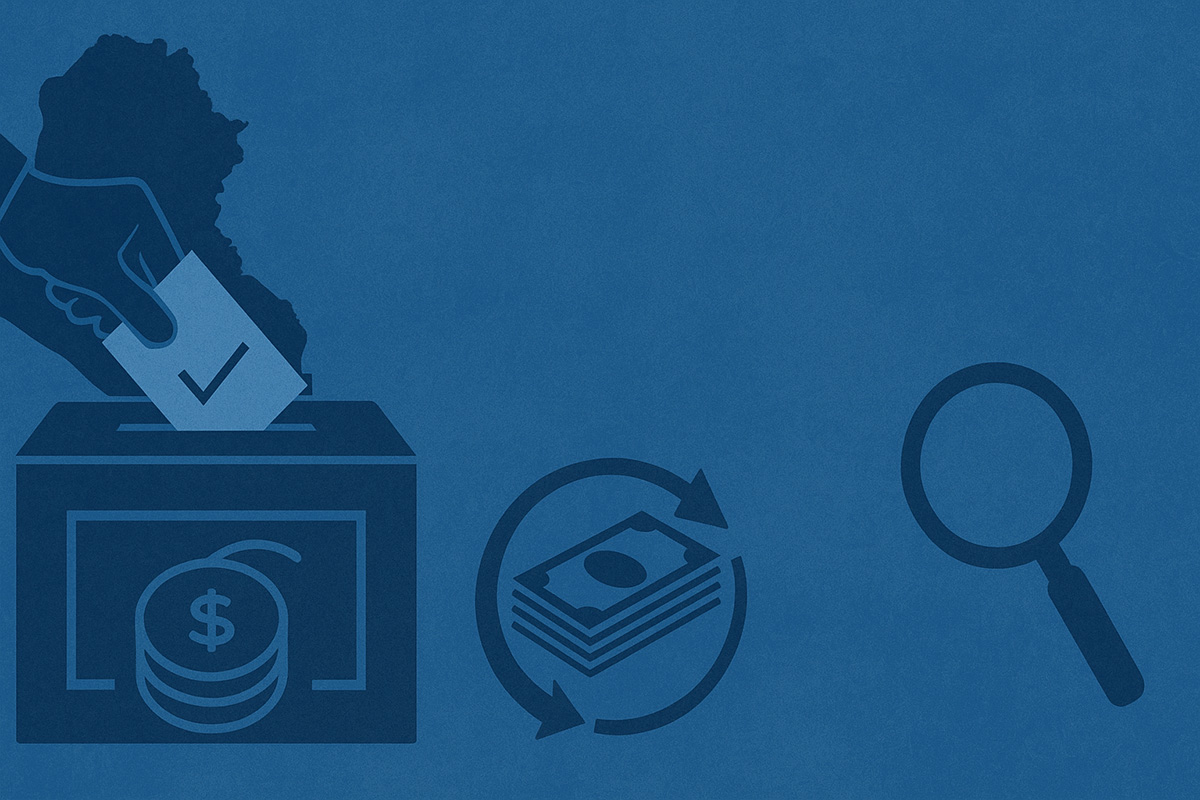Iraq is preparing to hold new parliamentary elections amid complex political and economic conditions and a noticeable decline in citizens’ trust in political institutions. While elections are supposed to represent an opportunity to correct the course and build a democratic system that reflects the aspirations of the people, the phenomenon of political money corruption once again threatens to undermine the legitimacy of this process and turn it into a mere “formal renewal” of the same traditional forces that have controlled the state’s key institutions for years.
In previous electoral cycles, Iraq witnessed many practices indicating the deep infiltration of corrupt money into the political process. The most prominent manifestations include:
Vote buying, especially in poor areas suffering from a lack of services, where some candidates exploit people’s needs by offering cash bribes or food baskets.
Funding massive media campaigns from unknown sources, often linked to parties or influential armed factions.
Spending outrageous amounts on advertising and electoral propaganda without any oversight or accountability.
Exploiting state institutions to promote candidates backed by ruling parties.
These practices in recent years have resulted in a parliament with weak popular will, more subject to the balances of money and influence than reflective of voters’ voices. The Iraqi street, especially since the October 2019 protests, has shown widespread dissatisfaction with the electoral process and its distorted mechanisms. Many Iraqis now believe that elections do not bring real change but are manipulated through money and political loyalties, leading to:
A growing public reluctance to vote,
Repeated accusations against the Independent High Electoral Commission of lacking transparency,
Weak representation of new and independent forces due to a lack of resources and the difficulty of competing with wealthy parties.
The international community, particularly United Nations and European Union missions, is closely monitoring Iraqi elections. In previous cycles, monitoring missions issued reports pointing to violations related to the use of political money and the influence of armed factions on voters’ will. This places Iraq in a serious test regarding its image before the world. The persistence of political money corruption undermines the credibility of the democratic process and affects its foreign relations, including:
The confidence of international investors in the country's stability,
Continued international support conditional on reforms,
And more cautious diplomatic dealings with a government perceived as the product of a corrupt electoral process.
Despite the challenges, the upcoming elections still represent a genuine opportunity for reform—if serious measures are taken, including:
Tightening control over campaign financing and obligating all candidates to disclose their funding sources.
Clear legal accountability for anyone proven to be involved in vote-buying or receiving illicit funds.
Supporting independent and youth-led lists to ensure broader representation.
Empowering the Independent High Electoral Commission to operate with full independence.
Activating the role of media and civil society in exposing electoral corruption and raising voter awareness.
The upcoming parliamentary elections in Iraq are not just a routine political event but a real test of the will for change. They will either be a moment to restore public trust and build a state of law—or turn into another round of reproducing corruption under the guise of ballot boxes.
Fighting political money corruption is not the Commission’s task alone but a collective responsibility that includes the state, civil society, media, and the voter himself, who must set standards for choice beyond party and political affiliation—because the future of the country and its people depends on this choice, which will undoubtedly be linked to Iraq’s future, its foreign relations, and its interests.






Comments